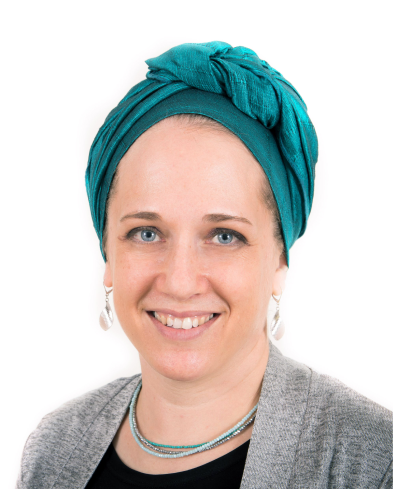"Parents, Kindergarten teachers, everyone is affected by ADHD. But, As a result of POET intervention, the child's is a different child. So, if POET intervention helps, then it should be applied to as many children as possible..."
The POET Approach
Parental Occupational Executive Training
by Carmit Frisch during her PhD studies
I developed the POET approach during my PhD studies, under the supervision of Prof. Sara Rosenblum (Department of Occupational Therapy, University of Haifa) and Prof. Emanuel Tirosh (Faculty of Medicine, Technion Insistute). The POET’s purpose is to provide timely intervention for young children presenting with ADHD symptoms and /or functioning delays. Applied through eight parental training sessions it is aims at improving the children’s daily functioning and executive functions.
The POET Approach focuses on helping parents understand what executive functions are, how executive functions affect the functioning of children with attention deficit hyperactivity disorder (ADHD) symptoms, and what parents can do to help their children be more successful in their day-to-day functioning. We also have special tools for parents who cope with ADHD symptoms themselves. In 2016, The POET approach won first place in the competition, “Doctoral Students Change the Lives of Children With Disabilities ” in Toronto, Canada.
My current study examines the feasibility and efficacy of the POET intervention while being carried online. In my post doc I will study the efficacy of a POET-based curriculum for teachers (POET-T)

About Me
My name is Carmit Frisch. I have a BA and MSc in occupational therapy from the Hebrew University and the University of Haifa, respectively. In 2017, I earned my PhD from the Department of Occupational Therapy, University of Haifa, Israel.
I am a clinician, a lecturer and a researcher. I worked for 15 years in public health settings and in a public child development center. Currently, I work in Otzmot center, in Kiryat Motzkin, Israel, with clients of all ages who cope with occupational challenges due to executive delays and comorbid conditions.
I believe with all my heart in the meaning of functioning for human health. I help those who turn to me to understand the set of factors that affect their functioning, which is directly related to the occupations they want to succeed in and to their skills and environment. During this process, it is of the utmost importance for me to be sensitive and comprehensive and accurately tailor the intervention to lead to successful daily functioning, and ensure client’s and thier families’ satisfaction.
Classic Occupational Therapy Intervention
Occupational therapy can help if your children have difficulties performing tasks at home, in educational settings, and other natural environments. For example, if yourFor example, if your children leave the table at meals, refuse to pick up games, scream whenever they do not like something, or are unable to keep themselves busy, an observation and occupational therapy intervention can really help!
Generally, we begin with an in-depth evaluation of the child’s strengths and challenges and the skills and abilities affecting them. We will create goals together for your child for areas in which you want them to succeed. You will always be part of the therapeutic process, whether via direct therapy sessions with your children or parental training sessions. Together, we will practice skills and activities and learn which age-appropriate tasks can help your child and which environmental conditions will encourage independence, joy, and success.
Lectures and Community-Based Sessions
A combination of clinical and research experience has led me to develop a variety of lectures in the fields of functioning, development, executive functions (EF) and the effect of delayed EF on health conditions that appear comorbidly in high frequency: ADHD, obesity, and diabetes. I have given the lectures in a variety of venues in the public and private spheres: health funds, hospitals, government offices, nonprofit associations, community centers, private care centers, and schools. I adapt my knowledge and experience to the audience and its goals.
